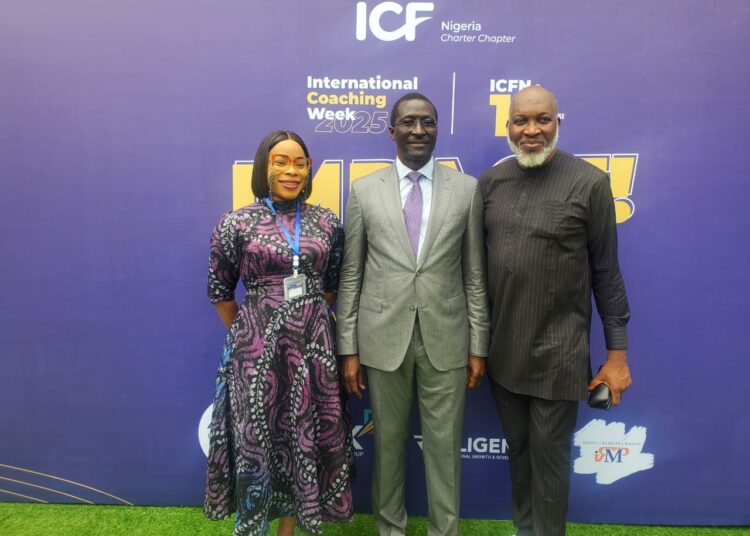As Nigeria grapples with persistent economic challenges, business leaders and state governments are increasingly turning to professional leadership coaching to strengthen performance, innovation, and decision-making across sectors.
This shift was highlighted at the 2025 International Coaching week, hosted by the International Coaching Federation (ICF) Nigeria, which celebrated its 10th anniversary in Lagos, on Tuesday.
President of ICF Nigeria, Akanimo Ekong, while giving his welcome address, said, coaching is becoming a strategic tool for growth-minded companies and forward-thinking public leaders.
“Corporate Nigeria and even political Nigeria now understand that coaching isn’t about giving instructions, it is about helping leaders think more clearly, act decisively, and build thriving cultures,” Ekong noted.
Once misunderstood and often conflated with mentoring or therapy, coaching is now viewed by an increasing number of Nigerian businesses as a critical leadership development resource. Ekong explained that professional coaches act as “thinking partners,” helping CEOs and managers navigate complexity by fostering self-awareness and strategic thinking, without giving direct advice. “In today’s dynamic economy, where certainty is scarce, coaching allows leaders to think beyond the old ways of doing things. This is especially important in Nigeria, where leadership transformation can be as critical as infrastructure or capital investment,” he said.
The Lagos state government is one of the early adopters in the public sector, with Governor Babajide Sanwo-Olu’s administration previously engaging ICF-certified coaches to work with executive teams. The move is seen as part of a broader effort to foster more responsive, innovative governance models in the face of widespread social and economic pressures.
On the corporate front, the appetite for certified coaches is also tied to concerns over standards. Ekong emphasised that ICF credentials require over 500 hours of coaching practice, rigorous assessments, and ethical accountability, a sharp contrast to the unregulated “two-day Instagram coaches” flooding the space. “Just like you wouldn’t board a plane with a pilot trained in five days, you shouldn’t trust your business strategy or team culture to an untrained coach. What we offer is global-standard professional support,” he said.
A retired Brigadier General and keynote speaker at the event, Dr. Tunde Reis, emphasized that Nigeria’s economic survival requires collective intelligence and multi-disciplinary collaboration. “Coaching enables an environment of curiosity and learning that brings everyone to the table, not just the loudest voice or the highest rank. In business and in governance, we can’t rely on a single genius. We need diverse minds working together,” he said.
Reis stressed that the country’s hierarchical cultural norms often hinder innovation, as younger, tech-savvy professionals are sidelined despite having practical insights into modern solutions. “Age and experience should serve as a compass, not a roadmap,” Reis said, advocating for a leadership culture that values listening and adaptation, both of which coaching promotes.
While the profession is financially rewarding, Reis agreed that the real value of coaching lies in its impact. “It’s about seeing leaders become more empathetic, more effective, and ultimately more human,” he said.
As Nigeria continues to seek innovative paths to economic recovery and long-term growth, coaching is emerging not just as a developmental tool, but as a leadership imperative.
“Leadership is not static. It must evolve and coaching is one of the most effective vehicles to drive that evolution — in boardrooms, government houses, and everywhere decisions that shape lives are made,” Reis affirmed.











